Gender and Protection Paving the Road for Humanitarian Response in the Pacific
Date:
Author: Kate Davidson
“Promoting gender equality and the protection of women, girls, boys and men go hand in hand, it must be at the forefront of humanitarian planning and response otherwise we are failing the people of the Pacific," UN Multi Country Representative, Aleta Miller told attendees at the opening of the Pacific regional Gender and Protection in Humanitarian Action training this week.
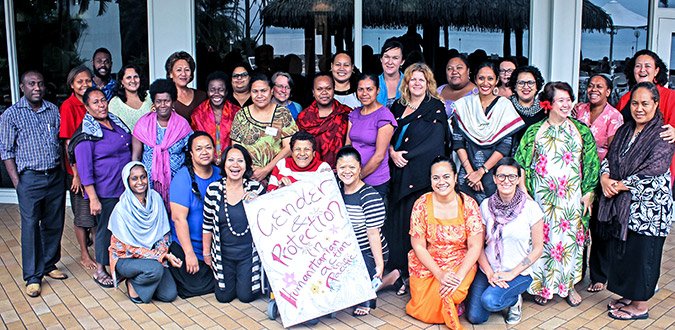
Protecting people before, during and after a disaster has been at the forefront of discussions among Pacific specialists from Fiji, Samoa, Tonga, Vanuatu and the Solomon Islands at the five-day workshop in Suva.
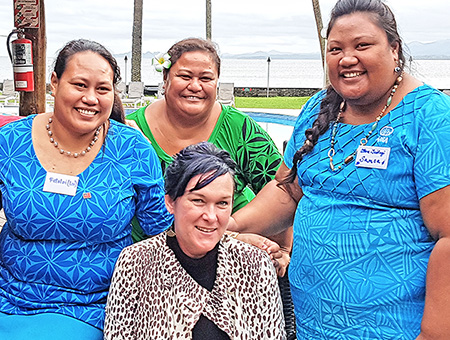
“The Pacific region is made up of beautiful island nations, but it is also a part of the world that bears the brunt of disasters, including earthquakes, volcanoes, floods, tsunamis, droughts and cyclones. In the past 18 months two massive cyclones have left a path of destruction across Fiji and Vanuatu. Each year brings another cyclone season and the potential of further widespread damage and vulnerability,” says Ms Miller.
“This is why as Pacific Humanitarian Protection Cluster lead UN Women is creating a space for Pacific actors to continue the critical conversation about how women in all their diversity need to be part of all stages of emergency management.”
Being part of the regional training and its conversations has created a platform for delegates from the different Pacific countries to find commonalities, recognize unique challenges and share solutions for strengthening gender and protection in disasters.For Rothina Noka, Gender & Protection Coordinator in the Vanuatu Department of Women’s Affairs, the training has given her insight into how to improve coordination back within the structures in Vanuatu and reinforced the crucial role of women.
“Women are the first responders and a vital resource to use in times of responding. You cannot do much without the wealth of knowledge that they have in the response, recovery and further development,” she says.Solomon Islands Under Secretary for Ministry of Women, Youth, Children & Family Affairs Hugo Hebala says it has been a learning experience and a chance to connect with others from across the Pacific.
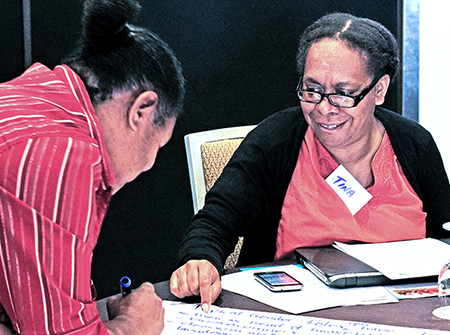
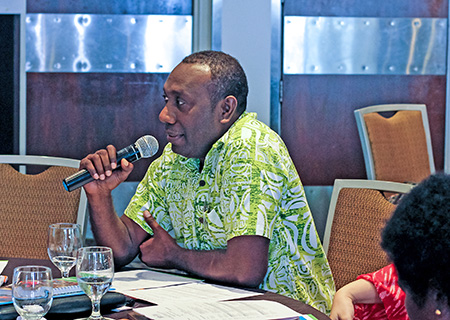
“We need to encourage Pacific-Pacific exchange bringing gender and protection people together just to learn from each other. This training for me is a perfect opportunity to do that because we can progress and share information with each other,” he says.Another takeaway for him was the importance of building the capacity of national staff engaged in gender and protection.
“We especially need to build the capacity of women so when disaster strikes women are there and can easily respond. They can be ready.”
April Pham, the Regional Gender Capacity Advisor for the UN in the Pacific, is one of the facilitators of the training.
“Promoting gender equality is also about identifying and mitigating the protection risks that women and girls, boys and men, persons with disabilities, and LGBTI members face before, during and after disasters. That’s why it’s so important we work together to understand the needs of communities and the systems in place, in order to be effective with support and assistance,” she says.
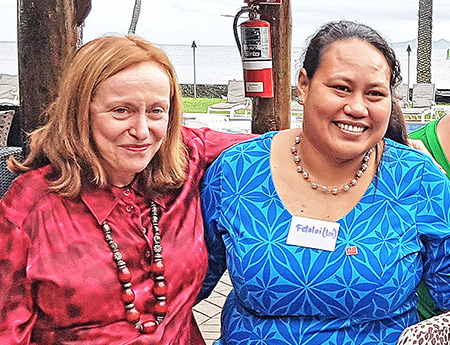
As the Pacific Humanitarian Protection Cluster lead UN Women delivered the workshop in partnership with the Gender Standby Capacity Project, which is managed by Norwegian Refugee Council. Attendees finished the workshop on World Humanitarian Day and will now facilitate national training within each of their own countries before the end of the year.
This is the first time UN Women globally has lead a cluster. UN Women’s leadership of the Pacific Humanitarian Protection Cluster follows its co-lead role of the Fiji Safety and Protection Cluster in Cyclone Winston which was shared with UNICEF and lead by the Fijian Government.